
Prof. Dr. Erik-Jan Zürcher is a well-known historian who has written extensively about the early history of the Republic of Turkey, its ideological roots and the circumstances that shaped it. While not everyone agrees with his interpretations on the history of Turkey, he is not someone that can be brushed off simply because one does not agree with his interpretations.
Yet, the statement he has released regarding the centennial of the relocation of Armenians (centennial of the “genocide” according to Zürcher) portrays a partisan historian who bases his arguments on unfounded premises, and who goes onto to put forth the “genocide narrative” regarding the events of 1915-16 as an indisputable fact.
This commentary is not meant be a refutation of every single point made by Zürcher in his statement, rather, it is meant to elaborate on some of problematic aspects of that statement.
Let us start with the following point made by Zürcher:
“Now that the outlines and many of the details of the [Armenian] genocide have been so well established by historical research based on original documents and eye-witness accounts…”
No, “the outlines and many of the details of the [Armenian] genocide” have not been “well established”. No document of the Ottoman government has ever been found that demonstrates that it specifically intended to systematically exterminate Armenians simply because of their Armenian identity (this is what genocide would come to mean in this context). There have been attempts to demonstrate such an intent by referring to forged documents, or by using misrepresentations or incomplete references of passages in real documents. However, such attempts have all been debunked either by Turkish or non-Turkish researchers.
Furthermore, there are a plethora of evidence pointing to the fact that the Ottoman government a) exempted its Armenian subjects living in certain provinces from relocation (relocation meaning that they were moved away from war zones and zones with Armenian revolutionary band and brigand activity), b) that it prescribed aid and protection to Armenians being relocated (the fact that it was unsuccessful in this regard does not change the factuality of what it prescribed), and c) that it punished (including sentencing them to death) Ottoman officials who abused Armenians during the relocation. It is illogical for a government to have the intention to systematically exterminate a people, while at the same time carrying out a), b), and c). Accused of committing crimes against Armenians, the British (who occupied Istanbul and therefore had access to all relevant documents) were unsuccessful in mounting a case against Ottoman officials held in Malta due to a lack of evidence. Meanwhile, the trials of 1919-20 mostly in Istanbul of Ottoman officials that espousers of the genocide narrative like to put forth have been demonstrated to have been kangaroo courts with no legal validity.
Yet, such facts that poke glaring holes in the genocide narrative are conveniently ignored by those who espouse this narrative.
“Eye-witness accounts” provided for the genocide narrative cannot serve as an evidence for the existence of a genocide. It is a fact that Armenians suffered tremendously during the events of 1915-16. However, telling stories of one’s ancestors being abused by Ottoman officials or Muslim populace somewhere is not a demonstration of the mindset or the intent of the ones who actually ordered Armenian relocation. The only eye-witness account that may have value in this regard is if an Armenian actually could personally testify to the issuance of the orders for the relocation (yet no such account exists). Furthermore (due to the disturbing rate of distortions regarding this dispute), with all due respect to the memory of Armenians’ ancestors, there is simply no way to verify whether the stories that have been passed down to them reflect what actually happened to their ancestors.
To introduce another perspective; primarily originating out of Ottoman Armenians, Armenian revolutionary gangs (aiming to establish an independent Armenian state within the territory of the Ottoman Empire) and brigands managed kill about 518,000 Muslims during their operations in Anatolia (Muslim deaths in this context seem to have no relevance for those who espouse the genocide narrative). Such groups therefore demonstrated an extreme capacity for killing. Combining this with the stories of atrocities committed by such Armenian groups against these Muslims, as told by their descendants, one could arrive at the notion that such Armenian groups sought to systematically exterminate Muslims simply because of their Muslim identity (which would entail genocide committed against Muslims). Although it is fact that such Armenian groups engaged in many massacres with brutal methods, there is no evidence to suggest that what they had in mind was what we would today define as genocide. Therefore, pointing to stories of one’s ancestors’ suffering is not by itself a proof of genocide either against Armenians, or against Muslims.
“… What is important for the definition of genocide is intent, the intent to destroy an ethnic or religious group wholly or in part. The motive behind this intent is not relevant, that is why the denialist argument that what happened in 1915-16 cannot be genocide because the Armenians formed a threat is nonsense, even if this contention were founded in fact.”
There are two points that can be made here.
1) Actually, what is “nonsense” is to use the “denialist” word. This is a crude label that is used in an attempt to delegitimize the argument that counters the genocide narrative. Denial is about ignoring a fact either because it is too painful to bear or because it does not suit one’s interest. The argument that counters the genocide narrative may be referred to as “rejectionist”. This argument “rejects” the genocide narrative because it is incongruent with the facts at hand.
2) Zürcher does not seem to have understood what the “rejectionist” argument is. The fact that the events of 1915-16 do not constitute genocide is not tied to whether or not Armenians posed a threat. The events of 1915-16 do not constitute genocide because, as explained before, the Ottoman government did not INTEND to systematically exterminate Armenians simply due to their identity, nor did it INTEND to act in way that would lead to the deaths of so many Armenians. The fact that armed Armenian groups wreaked havoc in Anatolia, tormented Ottoman Muslims (and murdered Ottoman Armenians who did not agree with their methods or ideology), attacked Ottoman troops, engaged in sabotage against Ottoman infrastructure, and collaborated with invading Allied forces gives context to the events of 1915-16. It helps explain why the Ottoman government saw relocation as a way to deprive such Armenian groups of their local Armenian support that was willingly or unwillingly giving support to such armed groups. The rejectionist argument is not about mitigating Armenian suffering, or about insinuating that Armenians deserved to suffer. This is an argument constructed out of available evidence, it is not about disrespecting Armenian memory.
“The other issue is the way in which modern Turkey, as it emerged after World War I was shaped by the Armenian genocide. … the issues that now require attention (and increasingly are also getting it, in Turkey as well) are the transfer (or theft) of Armenian property … [which] laid the basis for the emergence of a Turkish bourgeoisie during the republic.”
An argument based on unfounded premises is invalid by its nature. As explained before, there are too many counter points that can be brought up against the genocide narrative, which cause it to collapse under scrutiny. As such, the argument that the Republic of Turkey is founded on the legacy of genocide becomes baseless. Furthermore, if the issue was about the transfer or theft of Armenian property to establish a Turkish bourgeoisie, then the Ottoman Armenians of Istanbul and Izmir would have made prime targets. These Armenians were the wealthiest ones in the Ottoman Empire, whose wealth would have been the perfect resource to build a Turkish bourgeoisie. Yet, the Ottoman Armenians of Istanbul and Izmir were exempted from relocation (and no, the Great Fire of Izmir of 1922 was not started by Turks).
“That reconciliation cannot be built on denial, that is obvious, but it also cannot be built on compromise. Compromise is a politician’s tool and it serves to solve current issues, but it has nothing to do with an enquiry into historical truth. People cannot be slightly murdered. Nor can reconciliation be built on the notion, heavily promoted by the current Turkish government, that all those who suffered in the horrible years of World War I in Turkey should be commemorated together. Many more Germans died in World War II than Jews … but Chancellor Merkel would not dream of claiming that these should be remembered equally as victims of their time and circumstances.”
Again, Zürcher does not seem to have understood the gist of the rejectionist argument. The rejectionist argument does not allege that Armenians were “slightly murdered”. The rejectionist argument maintains that both Armenians and Muslims died in great numbers due to intercommunal fighting, revenge killings, abuse, starvation, and epidemics within the same decaying conditions that ended the Ottoman Empire. So yes, Armenians and Muslims can be compassionately commemorated together, because they lost their lives due to the same tragic circumstances. Zürcher’s example about Germans and Jews therefore makes no sense, because Jews were purely the victims of an ideologically motivated and industrial campaign of mass extermination, while Germans lost their lives because they fought a world war. This is completely different than what played out in the final days of the Ottoman Empire. And yes, reconciliation can be built on comprise: that Turks and Armenians can acknowledge each other’s peoples’ suffering, and respectfully agree to disagree on the genocide narrative.
“Recognition [of the Armenian Genocide] is important not just for the Armenians, but also for Turkey itself. As Taner Akçam has argued long ago, the genocide needs to be faced if Turkey is to develop into a more relaxed, more democratic, more humanist society. It can act as a catalyst to remove the blanket of narrow and increasingly religiously tainted nationalism that lies over this society.”
Let us briefly evaluate Akçam’s analysis. According to Akçam, and some socialists and liberals in Turkey, the “genocide” is an indisputable fact, but is nevertheless a taboo subject about Turkey’s dark history. According to them, such a taboo serves to stifle free debate in Turkey about its social issues. As such, Turkey must acknowledge the “genocide” to (as Zürcher puts it) “develop into a more relaxed, more democratic, more humanist society.”
Yet, the dispute over the events of 1915-16 is no longer a taboo subject in Turkey. Especially this year, both individuals and non-governmental organizations in Turkey are busy freely propagating their views on the events of 1915-16. Such views include the recognition and also the rejection of the genocide label. This subject is now being freely discussed in books, newspapers, and TV shows in Turkey.
What about Armenia and other countries? In Armenia, it would be unthinkable to deviate from the genocide narrative. Anyone who publicly dared to reject this narrative would quite frankly be lynched. What about other countries? In other countries, the Armenian diaspora and their supporters are busy attempting to have laws passed criminalizing the rejection of the genocide narrative and therefore stifling free speech. The fact of the matter is, as of now, the country in which the events of 1915-16 are most freely discussed is none other than Turkey.
Furthermore, the Turkish government has time and again indicated that it is ready to discuss its history. It has repeatedly made calls for the establishment of a joint historical commission to shed light on the events of 1915-16. Yet Armenia and the members of the Armenian diaspora, arguing that the “genocide” is an indisputable fact, have categorically rejected the establishment of such a commission without even discussing the composition of it (to make sure that it would be fair to Armenians). Since Armenians are absolutely sure of their genocide narrative, they have nothing to lose and everything to gain from accepting such a proposition. If the genocide narrative is accurate, the findings of the commission will surely support this narrative and help put an end to Turkey’s refusal to accept it.
Let us also add that almost all relevant archives in Turkey are open to both Turkish and foreign researchers. However, Armenia’s and diaspora Armenian organizations’ archives still remain closed (or are only open to a select number of partisan researchers). It does not look like Turkey has anything to hide. Can the same be said for Armenia and the diaspora Armenian organizations?
Finally, no competent court (as defined by the 1948 UN Genocide Convention) has ever made a ruling on the events of 1915-16. According to the Genocide Convention, only a competent court may decide whether an event constitutes genocide or not. As such, every single resolution that has been passed in various countries’ parliaments or by institutions about recognizing the “genocide” and calling upon Turkey to recognize it are legally void political statements. Such resolutions are actually against international law. Such statements by parliaments or the Pope of the Roman Catholic Church for example are therefore baseless, and reflect nothing more than Turcophobic and Islamophobic sentiments. The interest behind such statements cannot be a genuine interest in sharing Armenians’ pain, but is instead about gaining political leverage on and verbally harassing Turkey.
Law and history are on Turkey’s side, so why should Turkey affirm the genocide narrative? Affirming such a narrative in face of contradicting evidence and memory will only serve to alienate and infuriate large sections of Turkish society who reject the genocide narrative. This would only serve to hamper Turkish-Armenian relations due Turkish people’s reaction.
Turkey’s mistake was to remain relatively silent on this issue for decades. Turkey assumed that what it regarded as truth was self-evident and that it was not obligated to expound on it. Apparently, the truth was not self-evident. While Turkey was content to remain silent, Armenians were busy propagating their narrative and creating public opinion in certain parts of the world receptive to those stories. Turkey has finally learned from this mistake, but it has a lot to do before it can truly dispel the highly politicized genocide narrative regarding the events of 1915-16.
© 2009-2025 Center for Eurasian Studies (AVİM) All Rights Reserved
No comments yet.
-
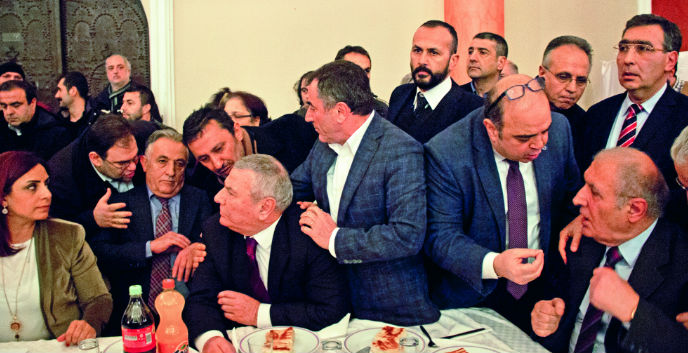 THE DISPUTE OVER THE ELECTION OF THE ARMENIAN PATRIARCH OF ISTANBUL CONTINUES
THE DISPUTE OVER THE ELECTION OF THE ARMENIAN PATRIARCH OF ISTANBUL CONTINUES
Mehmet Oğuzhan TULUN 27.02.2017 -
 THE RISE OF CHRISTIAN NATIONALISM
THE RISE OF CHRISTIAN NATIONALISM
Mehmet Oğuzhan TULUN 02.11.2022 -
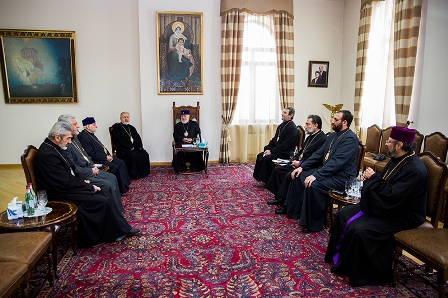 OUTSIDE INTERVENTION TO THE ELECTION OF THE ARMENIAN PATRIARCH OF ISTANBUL
OUTSIDE INTERVENTION TO THE ELECTION OF THE ARMENIAN PATRIARCH OF ISTANBUL
Mehmet Oğuzhan TULUN 15.03.2017 -
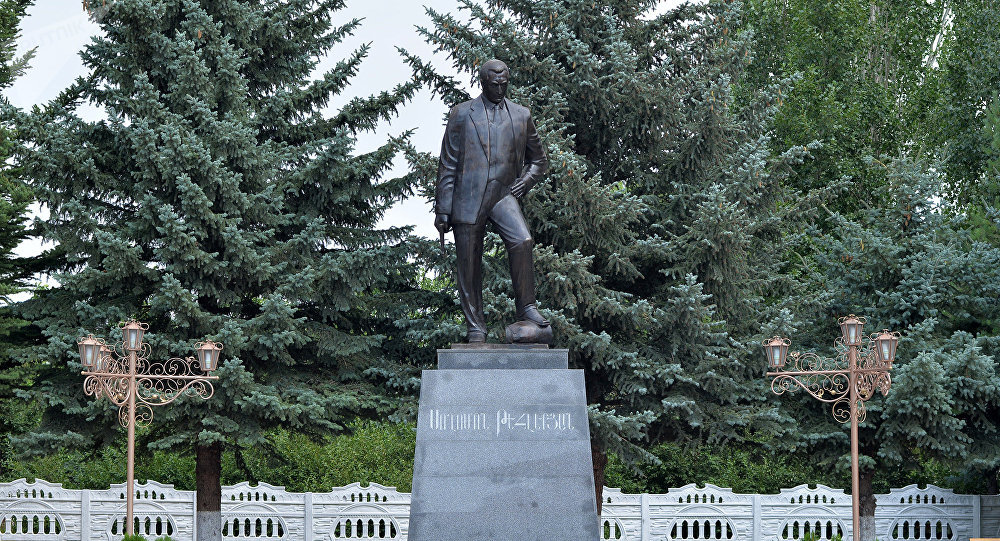 ARMENIA AND THE VENERATION OF TERRORISTS - II
ARMENIA AND THE VENERATION OF TERRORISTS - II
Mehmet Oğuzhan TULUN 16.09.2019 -
 GENOCIDE ALLEGATIONS, PROPAGANDA MOVIES, AND A 90-MILLION-DOLLAR FIASCO
GENOCIDE ALLEGATIONS, PROPAGANDA MOVIES, AND A 90-MILLION-DOLLAR FIASCO
Mehmet Oğuzhan TULUN 14.07.2020
-
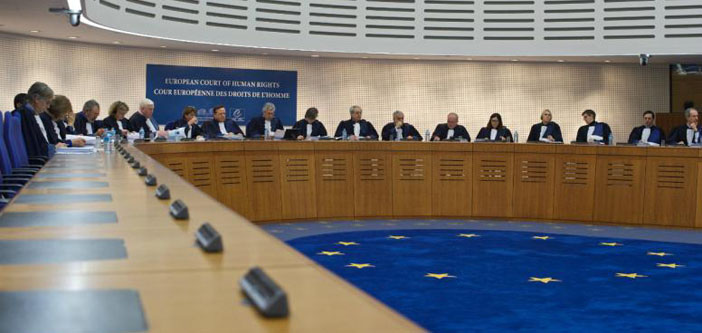 ARMENIAN ALLEGATIONS, LAW, AND POLITICAL LOBBYING
ARMENIAN ALLEGATIONS, LAW, AND POLITICAL LOBBYING
Gözde KILIÇ YAŞIN 26.05.2023 -
 TIRANA SUMMIT MIDST MULTIPLE PROCESSES: A CONFUSED EUROPEAN UNION IN THE BALKANS
TIRANA SUMMIT MIDST MULTIPLE PROCESSES: A CONFUSED EUROPEAN UNION IN THE BALKANS
Teoman Ertuğrul TULUN 14.12.2022 -
 HUNGARY'S PARTICIPATION IN THE COOPERATION COUNCIL OF TURKIC-SPEAKING STATES
HUNGARY'S PARTICIPATION IN THE COOPERATION COUNCIL OF TURKIC-SPEAKING STATES
Teoman Ertuğrul TULUN 12.09.2018 -
 MEDDLING IN TURKISH-ARMENIAN RELATIONS: PROPOSED AMENDMENTS ON THE EUROPEAN PARLIAMENT RESOLUTION ON 2014 COMMISSION PROGRESS REPORT ON TURKEY
MEDDLING IN TURKISH-ARMENIAN RELATIONS: PROPOSED AMENDMENTS ON THE EUROPEAN PARLIAMENT RESOLUTION ON 2014 COMMISSION PROGRESS REPORT ON TURKEY
Mehmet Oğuzhan TULUN 03.05.2015 -
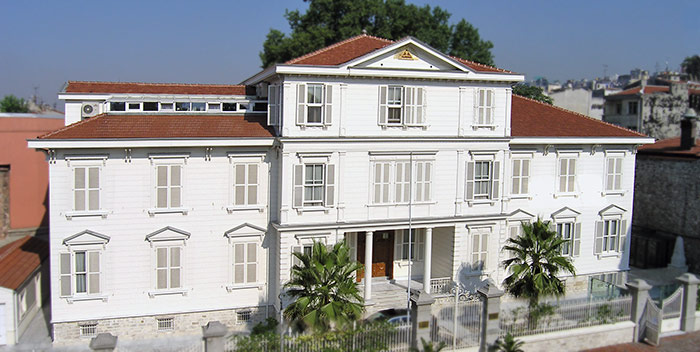 THE ELECTION PROCESS OF THE ARMENIAN PATRIARCH OF ISTANBUL HAS BEEN RESET
THE ELECTION PROCESS OF THE ARMENIAN PATRIARCH OF ISTANBUL HAS BEEN RESET
Mehmet Oğuzhan TULUN 09.05.2018
-
25.01.2016
THE ARMENIAN QUESTION - BASIC KNOWLEDGE AND DOCUMENTATION -
12.06.2024
THE TRUTH WILL OUT -
27.03.2023
RADİKAL ERMENİ UNSURLARCA GERÇEKLEŞTİRİLEN MEZALİMLER VE VANDALİZM -
17.03.2023
PATRIOTISM PERVERTED -
23.02.2023
MEN ARE LIKE THAT -
03.02.2023
BAKÜ-TİFLİS-CEYHAN BORU HATTININ YAŞANAN TARİHİ -
16.12.2022
INTERNATIONAL SCHOLARS ON THE EVENTS OF 1915 -
07.12.2022
FAKE PHOTOS AND THE ARMENIAN PROPAGANDA -
07.12.2022
ERMENİ PROPAGANDASI VE SAHTE RESİMLER -
01.01.2022
A Letter From Japan - Strategically Mum: The Silence of the Armenians -
01.01.2022
Japonya'dan Bir Mektup - Stratejik Suskunluk: Ermenilerin Sessizliği -
03.06.2020
Anastas Mikoyan: Confessions of an Armenian Bolshevik -
08.04.2020
Sovyet Sonrası Ukrayna’da Devlet, Toplum ve Siyaset - Değişen Dinamikler, Dönüşen Kimlikler -
12.06.2018
Ermeni Sorunuyla İlgili İngiliz Belgeleri (1912-1923) - British Documents on Armenian Question (1912-1923) -
02.12.2016
Turkish-Russian Academics: A Historical Study on the Caucasus -
01.07.2016
Gürcistan'daki Müslüman Topluluklar: Azınlık Hakları, Kimlik, Siyaset -
10.03.2016
Armenian Diaspora: Diaspora, State and the Imagination of the Republic of Armenia -
24.01.2016
ERMENİ SORUNU - TEMEL BİLGİ VE BELGELER (2. BASKI)
-
AVİM Conference Hall 24.01.2023
CONFERENCE TITLED “HUNGARY’S PERSPECTIVES ON THE TURKIC WORLD"









